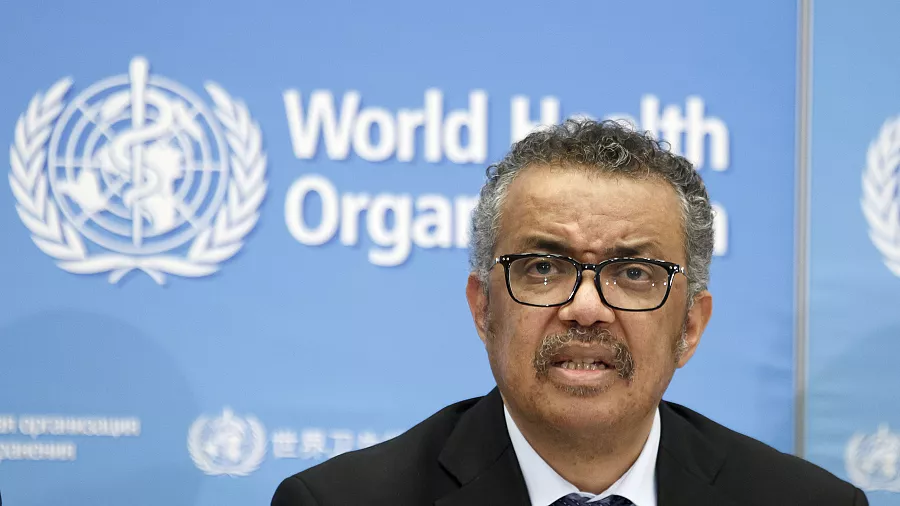WHO Chief Visits Kigali as Rwanda Advances in Containing Marburg Outbreak
3 min read
Tedros Adhanom Ghebreyesus, Director General of the World Health Organization (WHO) on Feb. 24, 2020.

Tedros Adhanom Ghebreyesus, Director General of the World Health Organization (WHO) on Feb. 24, 2020.
Rwanda is making significant strides in containing an outbreak of the Marburg virus, according to health authorities. In a recent update, the Minister of Health announced that there have been no new infections or deaths reported in the past six days, marking a hopeful turning point in the outbreak response.
As of now, there have been 44 recoveries, with only three active cases remaining. The Marburg virus, which is similar to Ebola, has claimed the lives of 15 individuals in this outbreak. The health officials are optimistic, emphasizing that the absence of new cases is a strong indicator that community transmission has not occurred. They continue to monitor anyone displaying symptoms and have reported that all individuals tested in the last month have returned negative results for the virus.
Rwanda has tracked 1,146 contacts related to the outbreak, ensuring that all positive cases have been linked to known contacts of infected individuals. This proactive approach has been critical in preventing the spread of the virus.
The Marburg virus is believed to originate from fruit bats and is transmitted between humans through direct contact with the bodily fluids of infected individuals or contaminated surfaces, such as bed linens. Symptoms of the disease include fever, muscle pain, diarrhea, vomiting, and in severe cases, death due to excessive blood loss.
The outbreak was officially declared on September 27, prompting immediate measures to limit transmission. These measures included the suspension of school activities and hospital visits, as well as a ban on home vigils for those who die from the virus.
The situation in Rwanda has drawn international attention, including a visit from the Director-General of the World Health Organization (WHO), Dr. Tedros Adhanom Ghebreyesus. His mission aims to assess the country’s response to the Marburg outbreak and the support being provided by the WHO and various partners.
During his visit, Dr. Tedros toured health facilities treating infected individuals and the command center overseeing the outbreak response. He praised the country’s efforts, noting, “I can see that the outbreak is being managed under strong leadership.” The emphasis on identifying and isolating those exposed to the virus is crucial in halting the spread of viral hemorrhagic fevers like Marburg.
In a significant development, Rwanda has initiated a study for potential vaccines against the Marburg virus. While there are currently no approved vaccines or therapeutics for Marburg, Dr. Tedros commended Rwanda for its swift action in launching trials for both vaccines and treatment options. He expressed hope that these trials will generate essential data to support the approval of these medical products for future outbreaks.
Without treatment, Marburg can be fatal in up to 88% of cases, making early supportive care crucial. Measures such as rehydration and symptomatic treatment significantly enhance survival rates. The virus was first identified in 1967 after simultaneous outbreaks occurred in laboratories in Marburg, Germany, and Belgrade, Yugoslavia, leading to the deaths of seven researchers exposed to the virus while working with monkeys.
As Rwanda continues to battle this outbreak, the focus remains on community engagement and rapid response to any potential resurgence of the virus. The ongoing collaboration with international health organizations underscores the importance of a coordinated global response to infectious disease outbreaks.
In summary, while the recent lack of new infections is encouraging, health officials emphasize that vigilance must continue. The community’s cooperation and the government’s decisive actions have played a vital role in managing this outbreak, but the lessons learned will be crucial for any future public health challenges.
As the situation develops, Rwanda stands as a testament to the effectiveness of prompt action and strong leadership in the face of a public health crisis. The hope is that with continued support and research, the country can not only contain the current outbreak but also prepare better for any potential future threats.